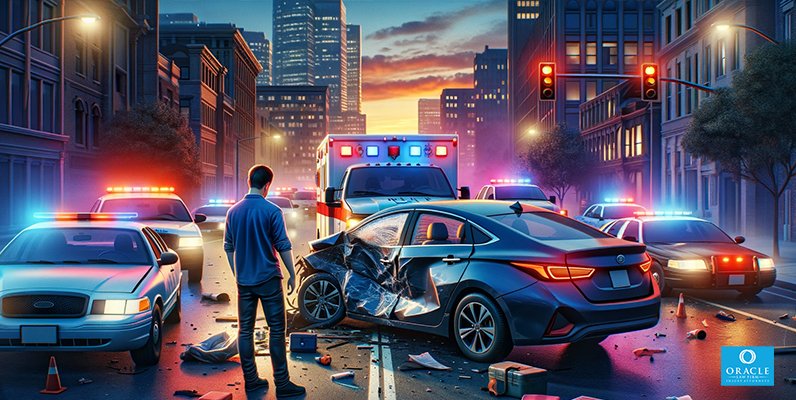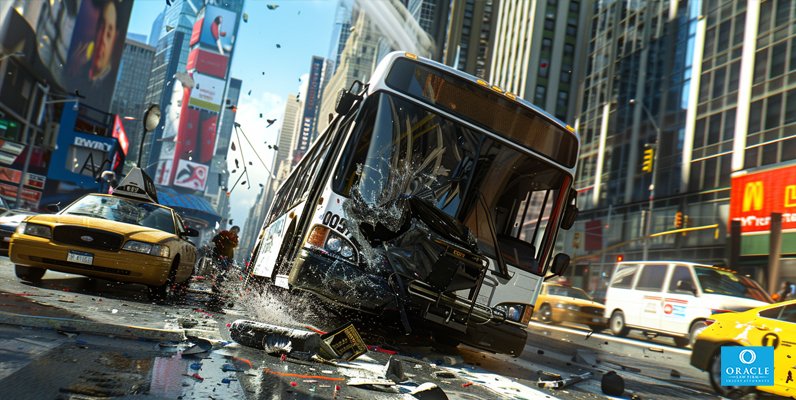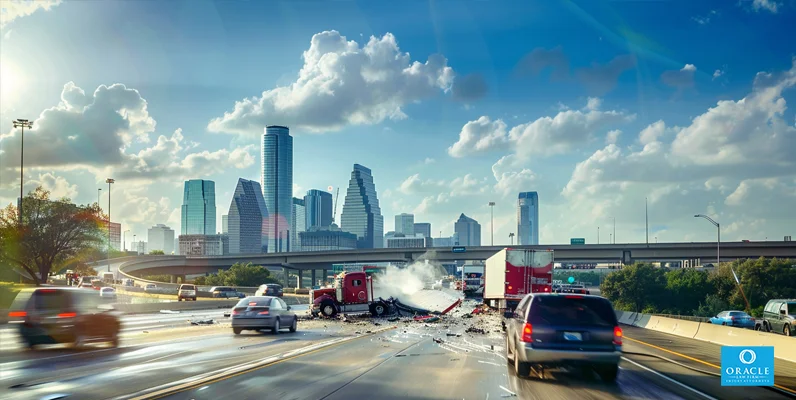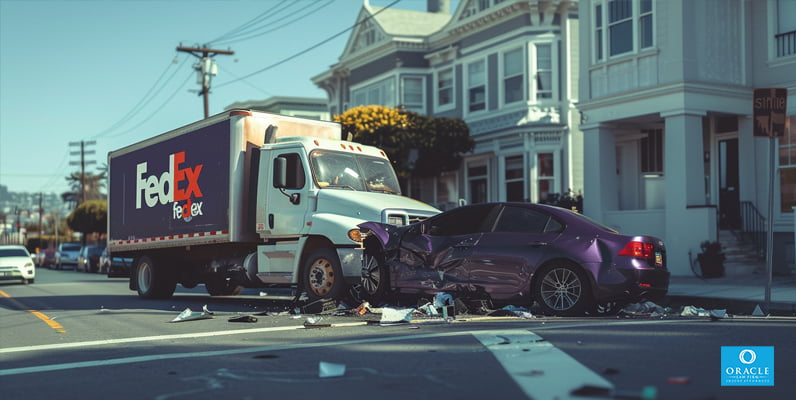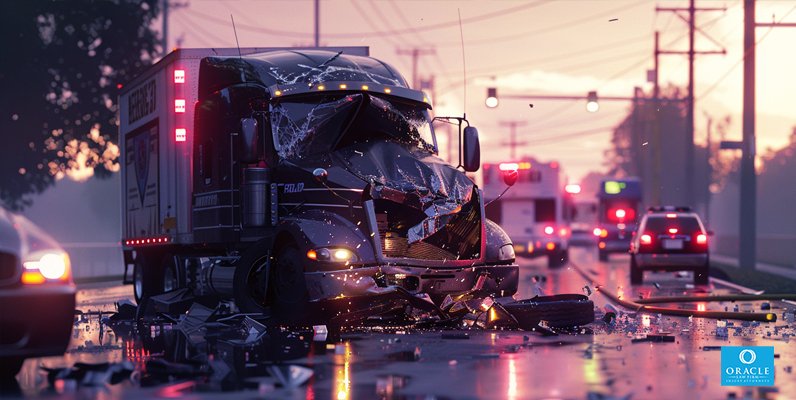Imagine you’re driving home after a long day at work, and suddenly, another driver rear-ends your car. You’re shaken but thankfully unhurt. Although the accident wasn’t your fault, you’re unsure of what steps to take next. Knowing “what to do after car accident not your fault” is essential to protect your rights and ensure fair compensation. We’ll guide you through the process, from the immediate actions at the scene to dealing with insurance adjusters and navigating potential legal issues.
Key Takeaways
- Prioritize safety and exchange information at the scene of an accident.
- Notify law enforcement, insurance companies, seek medical attention and document the incident for a successful personal injury claim.
- Understand your rights when dealing with insurance adjusters to receive fair compensation for damages incurred.
Immediate Actions at the Scene of the Accident
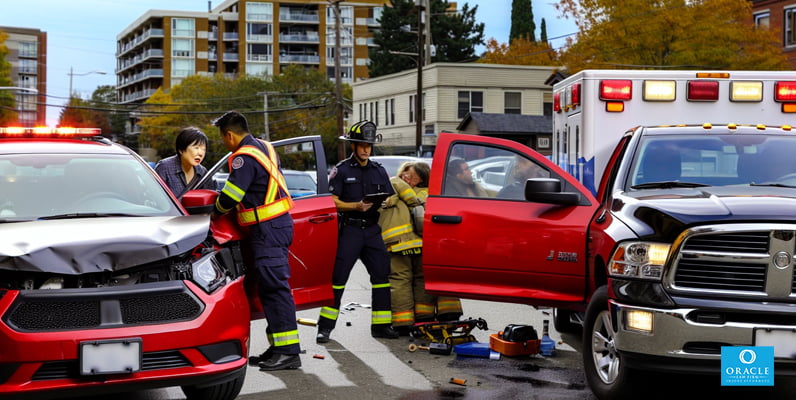
The moments following a car accident can be overwhelming and disorienting, especially when the accident happened unexpectedly. However, responding appropriately at the scene is key to safeguarding yourself and constructing a solid case. Your safety and the safety of others involved should always be your top priority.
After ensuring everyone’s safety, exchanging details with the other driver and recording the accident scene becomes the next step. These measures will set the groundwork for a winnable insurance claim or prospective legal action in the future.
Secure Your Safety and Check for Injuries
Before you start assessing damages and exchanging information, prioritize everyone’s safety. Here are the steps to follow:
- Turn on your hazard lights to warn approaching vehicles.
- Move your car to the side of the road if possible to avoid obstructing traffic.
- Check yourself for injuries and do the same for your passengers and the other driver.
- If anyone has serious injuries, call 911 immediately.
- Remember that some injuries may not be apparent at first, so it’s always a good idea to seek medical attention even if you feel fine initially.
Exchange Information with the Other Driver
Once you’ve ensured everyone’s safety, it’s time to exchange information with the other driver. Obtain the following information from the other driver:
- Name
- Address
- Driver’s license number
- Phone number
- Email address
- Insurance information
Be sure to also record their vehicle’s make, model, and license plate number. Avoid discussing fault or apologizing for the accident at this stage, as it can impact your claim later on. Rather, concentrate on collecting the required data to simplify the claims procedure.
Document the Accident Scene

Documentation is key when it comes to car accidents. Here are some steps to follow:
- Use your smartphone to take photos and videos of the accident scene, capturing details such as vehicle damage, skid marks, debris, and road conditions.
- If there are any witnesses, ask for their contact information and statements.
- This evidence will be invaluable in supporting your claim and determining fault.
Keep in mind, the more evidence you accumulate, the more robust your case becomes.
Notifying the Necessary Parties
Upon exiting the accident scene, promptly informing the relevant parties becomes paramount. This includes contacting law enforcement to file a police report and informing your insurance company about the accident. Even if you were not at fault for the accident, alerting your insurer is key to safeguarding your interests and adhering to your policy conditions.
The subsequent subsections will highlight the significance of engaging law enforcement and your insurance company following an accident.
Contact Law Enforcement
Filing a police report can be a crucial piece of evidence in determining fault and supporting your claim. A law enforcement officer will document the events of the accident, including interviews with drivers and witnesses. They may also issue citations if any traffic laws were violated.
In certain areas, the law necessitates filing a police report, particularly when injuries or substantial property damage are involved. Make sure to obtain a copy of the report, as it will be a valuable resource for your insurance company and any legal professionals involved in your case.
Inform Your Insurance Company
Alerting your insurance company about the accident is imperative, regardless of whether you were at fault. Doing so demonstrates your commitment to proper accident-reporting and provides assistance if the other party’s insurance is not valid or they deny responsibility for the accident. Your insurer can also help guide you through the claims process and ensure you’re aware of any potential coverage available under your policy.
Bear in mind, quick correspondence with your insurance company can aid in safeguarding your coverage and interests.
Medical Attention and Documentation

Obtaining medical care and recording your injuries is pivotal in supporting a personal injury claim following an accident. Even if your injuries seem minor, it’s important to get checked out by a medical professional to identify and treat any potential issues. Proper documentation of your injuries and treatment can greatly impact the outcome of your claim and the amount of compensation you receive.
The next subsections will touch on the significance of medical evaluation and preserving records after a car accident.
Seek Immediate Medical Evaluation
After a car accident, it’s important to:
- Get a medical check-up as soon as possible, even if you don’t feel any immediate pain or discomfort.
- Some injuries, such as whiplash or concussions, may not present symptoms right away.
- A prompt medical evaluation can identify these hidden injuries and ensure you receive proper treatment.
Moreover, medical documents from the check-up can act as key evidence to back a personal injury claim.
Keep a Record of Medical Visits and Expenses
Keeping detailed records of your medical visits, treatments, and expenses is vital for a successful personal injury claim. These records can help demonstrate the extent of your injuries and the ongoing costs of your treatment. Be sure to keep track of:
- All doctor visits
- Medication expenses
- Physical therapy sessions
- Any other related costs
An extensively documented medical history can fortify your claim and elevate the likelihood of receiving just compensation for your injuries.
Understanding and Filing an Insurance Claim
The insurance claim process can be perplexing, particularly if you’re unaccustomed to filing a claim. Comprehending your choices and how to lodge a claim with the at-fault driver’s insurer or navigate no-fault state regulations is key to receiving appropriate compensation for your damages and injuries.
The next subsections will discuss the procedure of initiating a third-party insurance claim and dealing with no-fault state regulations.
Initiate a Third Party Insurance Claim
When the other driver is at fault, you can start a third-party insurance claim with the other driver’s insurance company, also known as the at fault driver’s insurer, to seek recompense for your damages and injuries. The process generally involves contacting the insurer, providing the necessary information about the accident, and submitting a claim for damages. Keep in mind that the other driver’s insurance policy limits may affect the amount of compensation you can receive.
If their policy limits are insufficient to cover your damages, you may need to explore other options, such as uninsured driver’s coverage or legal action.
Navigate Through No Fault States Regulations
In no-fault states, each driver must file a claim with their own insurance company after an accident, regardless of who is at fault. This means that your insurance company will cover your medical expenses and property damage up to your policy limits, while the other driver’s insurance company will cover theirs. However, in cases where fault is determined, the fault driver’s insurance company may be responsible for additional compensation. Comprehending no-fault state regulations is vital, as they can influence your insurance claim and compensation.
Ensure you acquaint yourself with the specific rules and requirements in your state for an untroubled claims process.
Legal Considerations and Seeking Representation
In certain situations, considering legal representation to safeguard your rights and maximize your compensation following an accident might be necessary. A qualified car accident attorney can help you navigate the complexities of insurance claims, negotiate with insurance adjusters, and even pursue legal action if necessary.
The subsequent subsections will talk about when to consult a car accident lawyer and how to select the suitable attorney for your case.
When to Consult a Car Accident Lawyer
Consulting a car accident lawyer becomes imperative if you face obstacles with insurance companies, like disputes over liability or insufficient settlement proposals. An experienced attorney can help with the following:
- Protect your rights
- Gather evidence
- Negotiate on your behalf
- Ensure you receive fair compensation for your damages and injuries.
Additionally, if your case involves complex legal issues or the other driver is uninsured, having legal representation can be invaluable.
Choosing the Right Car Accident Attorney
Locating the suitable car accident attorney is key to the triumph of your case. When choosing a lawyer, look for someone with experience in handling car accident cases and a strong track record of successful outcomes. Consider factors such as communication skills, availability, and their fee structure. Don’t hesitate to ask for referrals from friends or family members who have had positive experiences with car accident attorneys.
In the end, the attorney you choose should be someone you trust and are confident will represent your best interests.
Dealing with Insurance Adjusters
Insurance adjusters have a notable role in the claims process, as they ascertain your claim’s value and negotiate settlements representing the insurance company. Communicating effectively with insurance adjusters and handling settlement offers can be challenging, but it’s crucial to protect your interests and secure fair compensation.
The next subsections will share advice on interacting with insurance adjusters and managing settlement offers.
Communication Tips with Insurance Adjusters
When conversing with insurance adjusters, it’s significant to be careful and provide only the necessary details about the accident. Avoid admitting fault or providing details that are not directly relevant to the claim. Instead, focus on the facts of the accident and the damages you’ve incurred.
Be polite and respectful in your interactions, but remember that the adjuster’s primary goal is to minimize the insurance company’s payout. If you’re unsure about how to respond to an adjuster’s questions or requests, consider consulting with a car accident attorney for guidance.
Handling Settlement Offers
Assessing and negotiating settlement offers can be a complicated process, but it’s crucial to ensure you receive just compensation for your injuries and damages. When you receive a settlement offer, take the time to review it carefully and assess whether it adequately covers your medical bills, lost wages, and other expenses. If the offer seems too low, don’t hesitate to consult with a lawyer or negotiate with the insurance adjuster for a higher amount.
Keep in mind that you have the right to pursue legal action if you’re unable to reach a satisfactory agreement with the insurance company.
Repairing Vehicle Damage
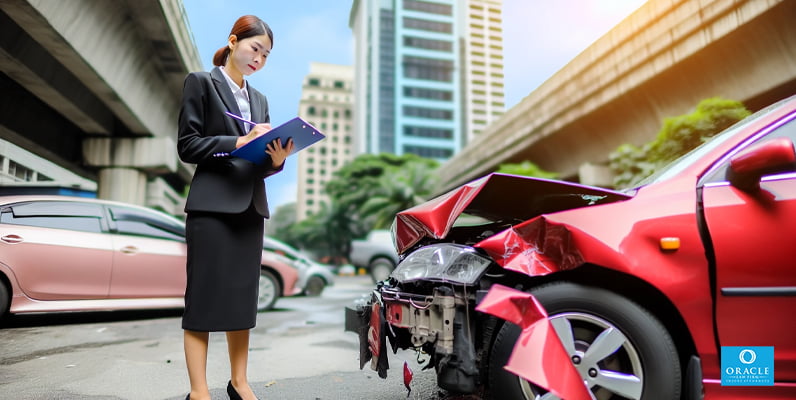
Arranging for your vehicle to be repaired or replaced following an accident can be an exasperating and lengthy process. Working with insurers and repair shops to ensure your car is properly fixed and that you’re fairly compensated for the damages can seem daunting.
The next subsections will delve into the assessment of vehicle repairs and collaborating with insurers to swiftly and effortlessly get your car back on the road.
Assessing Vehicle Repairs and Working with Insurers
Post a car accident, assessing your vehicle’s damage and obtaining repair estimates from trustworthy shops is significant. Your insurance company will likely have a list of preferred repair shops, but you’re not obligated to use them. Get multiple estimates and compare the costs and services offered.
Once you’ve selected a repair shop, work closely with your insurer to ensure that they cover the costs of the repairs. Keep in mind that if the other driver is at fault, their insurance company should be responsible for covering the repair costs.
Uninsured Driver’s Coverage and Alternatives
In cases where the at-fault driver lacks sufficient insurance to cover the damages, you may need to explore other options, such as the at fault driver’s insurance, uninsured driver’s coverage, or legal action. Uninsured driver’s coverage can help pay for your vehicle repairs and medical expenses if the other driver is uninsured or underinsured. If you don’t have this coverage, you may need to consider pursuing a lawsuit against the at-fault driver to recover the costs of your damages.
Consult a car accident attorney to discuss your options and establish the best plan of action for your car accident claim and circumstances.
Financial Implications After an Accident
Car accidents can bring noteworthy financial implications, ranging from medical bills and lost wages to possible hikes in insurance premiums. It’s important to be aware of these potential financial challenges, including car accident injuries, and take steps to mitigate their impact on your life.
The subsequent subsections will talk about managing medical bills and lost wages, and the possible impact of an accident on your insurance premiums.
Managing Medical Bills and Lost Wages
Post an accident, you may face escalating medical bills and lost wages due to your injuries. To manage these expenses, seek compensation through insurance claims or legal action. Ensure that your claim accurately reflects all of your medical costs and any lost income resulting from your injuries. Work closely with your attorney or insurance adjuster to ensure that you receive fair compensation for your losses.
Additionally, explore programs and resources that may be available to help cover your medical expenses and replace lost income.
Impact on Insurance Premiums Post-Accident
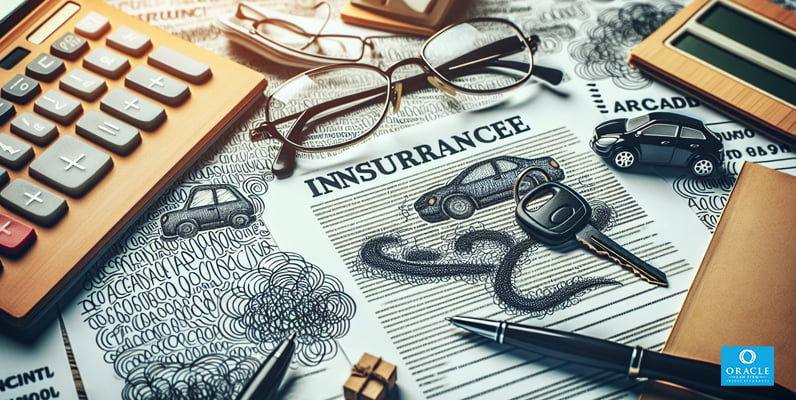
An accident, even if you were not at fault, can potentially affect your insurance premiums. Some states prohibit insurers from raising premiums for accidents in which the policyholder was not at fault. However, the specifics can vary depending on your location and the details of the accident.
To mitigate any potential hikes in your premiums, uphold a clean driving record, seek competitive rates, and contemplate increasing your deductible or modifying your coverage.
Summary
Navigating the aftermath of a car accident that’s not your fault can be a complex and often overwhelming process. By taking the right steps at the scene of the accident, seeking medical attention, filing a claim with the at-fault driver’s insurer, and considering legal representation, you can protect your rights and ensure you receive fair compensation for your injuries and damages. Always be proactive in managing the financial implications of an accident, from medical bills and lost wages to potential impacts on insurance premiums. With proper knowledge and preparation, you can successfully navigate the challenges that arise after an accident and move forward on the road to recovery.
Frequently Asked Questions
What happens if an accident is not your fault?
If an accident is not your fault, the other driver’s insurance company should be liable for your damages and you should be compensated for all costs. However, insurance companies often try to reduce their own costs, so this may not be straightforward.
What happens if you don’t admit fault in a car accident?
Not admitting fault in a car accident can have significant consequences, such as making the settlement process more difficult and prolonging the recovery period.
How do you tell who sideswiped who?
By examining the length, direction, and location of scrape marks on both vehicles, it is possible to tell which vehicle initiated the sideswipe. If one vehicle shows scratches and marks predominantly on one side while the other vehicle remains largely unscathed, this indicates the direction of the sideswipe.
What are 3 things you must have when an accident happens?
In the case of an accident, you must have your driver’s license, vehicle registration card and proof of insurance to provide to the other driver or a peace officer. Additionally, take detailed notes on what happened, including the speed you were driving and road conditions, and draw a diagram of the scene with the direction each vehicle was traveling.
How do I file a claim with the at-fault driver’s insurance company?
Contact the at-fault driver’s insurer, provide all the necessary details about the accident, and submit a claim for damages to file a claim.
